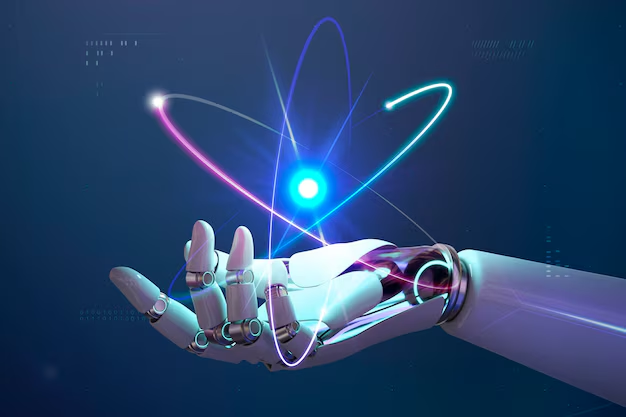How Technology is Transforming Industries and Everyday Life
Technology is no longer just a part of our lives—it is the driving force reshaping how industries operate and how we go about our day-to-day activities. From the way businesses streamline operations to how individuals connect, work, and even entertain themselves, the impact of technology is undeniable. Innovations like artificial intelligence (AI), automation, and the Internet of Things (IoT) are not only enhancing productivity and efficiency but also redefining experiences across all sectors. Let’s take a closer look at how technology is transforming industries and our everyday lives.
1. Revolutionizing Healthcare
Technology has dramatically altered the healthcare landscape, improving both treatment outcomes and patient experiences. Innovations like telemedicine, AI-driven diagnostics, and robotic surgeries are making healthcare more accessible and efficient. For example, telemedicine allows patients to consult with doctors remotely, eliminating geographic barriers, while AI is helping physicians detect diseases like cancer earlier and more accurately through image analysis. Wearable devices, like fitness trackers and smartwatches, monitor health metrics in real-time, empowering individuals to take charge of their wellness.
2. The Rise of Smart Homes
With the advent of smart home technology, everyday life has become more comfortable and efficient. Devices like smart thermostats, voice-controlled assistants (e.g., Alexa, Google Home), and connected security systems offer users increased control over their living environments. For instance, smart lighting can adjust automatically based on the time of day, while home security systems can send alerts directly to your phone. These technologies not only make homes more energy-efficient and secure but also provide a higher level of convenience.
3. Transforming Transportation
Transportation has seen massive changes, driven by advancements in technology. Electric vehicles (EVs) are quickly becoming the norm, helping to reduce carbon footprints and promote sustainability. Autonomous vehicles, though still evolving, are expected to drastically change how we commute, potentially eliminating the need for human drivers and improving road safety. Furthermore, ride-sharing apps like Uber and Lyft have made it easier for people to get from point A to point B with just a few taps on their smartphones.
4. AI and Automation in the Workforce
One of the most significant changes brought about by technology is the rise of AI and automation in the workforce. These technologies are transforming industries like manufacturing, logistics, and customer service. In factories, robots now perform repetitive and labor-intensive tasks with precision, allowing human workers to focus on more complex roles. In customer service, chatbots powered by AI provide instant support, improving response times and customer satisfaction. While there are concerns about job displacement, AI and automation also open up new career opportunities in fields like machine learning, data science, and robotics.
5. Changing Retail and E-Commerce
The retail industry has undergone a massive transformation thanks to technology. E-commerce platforms like Amazon, Shopify, and eBay have made it easier than ever for consumers to purchase goods from anywhere in the world. Augmented reality (AR) and virtual reality (VR) are enhancing the online shopping experience, allowing customers to virtually try on clothes, visualize furniture in their homes, or explore products in 3D before making a purchase. Additionally, AI-driven recommendation engines help businesses tailor their offerings to individual preferences, leading to a more personalized shopping experience.
6. Education and Remote Learning
Technology has made education more accessible and flexible than ever before. Online learning platforms like Coursera, Udemy, and Khan Academy provide individuals with opportunities to learn new skills from the comfort of their homes. For traditional schools, tools like Google Classroom and Zoom have become indispensable, allowing students and teachers to connect remotely. Additionally, AI-driven tutoring systems offer personalized learning experiences, helping students understand complex subjects at their own pace. The rise of digital classrooms and educational resources ensures that learning can continue without the constraints of physical space.
7. The Evolution of Communication
Communication has drastically changed thanks to technology, shrinking the world and connecting us in ways that were once unimaginable. Instant messaging, video calls, and social media platforms enable people to stay in touch across distances, share moments, and collaborate in real-time. Platforms like Zoom and Microsoft Teams have made remote work and virtual meetings the norm, allowing businesses to operate globally with ease. Social media has also transformed how brands engage with consumers, allowing for real-time interaction and customer feedback.
8. Entertainment and Content Creation
Technology has revolutionized how we consume entertainment and create content. Streaming platforms like Netflix, Spotify, and YouTube have changed the way we access music, movies, and television shows, offering on-demand, personalized experiences. Content creators now have access to tools and platforms that allow them to reach global audiences, from YouTubers to podcasters. Virtual and augmented reality are also making waves in entertainment, offering immersive experiences that blur the line between the digital and physical worlds.
9. Sustainable Solutions and Green Tech
Technology is also playing a crucial role in addressing environmental challenges. Innovations in renewable energy, such as solar and wind power, are helping to reduce our reliance on fossil fuels and combat climate change. Smart grids, energy-efficient buildings, and electric transportation are just a few examples of how technology is contributing to more sustainable living. The rise of eco-friendly innovations is pushing industries to adopt greener practices, from waste management to supply chain logistics.
10. Financial Services and FinTech
The financial industry has been transformed by technology, with the rise of FinTech (financial technology) bringing about innovations like mobile banking, digital wallets, peer-to-peer lending, and cryptocurrency. Apps like Venmo and PayPal allow people to transfer money instantly, while blockchain technology is enabling secure, transparent transactions. Robo-advisors are also changing the way people invest, offering personalized portfolio management without the need for a traditional financial advisor.
Conclusion
Technology is undoubtedly changing the way we live, work, and interact with the world around us. From healthcare to transportation, education to entertainment, it is reshaping industries and improving the quality of life for individuals. While there are challenges, such as job displacement and privacy concerns, the overall impact of technology has been overwhelmingly positive, driving innovation and efficiency across all sectors. As technology continues to evolve, it will undoubtedly bring even more transformative changes, further enhancing our daily lives and the industries that power the global economy.

